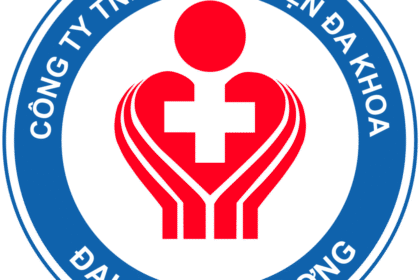Fasting is a journey of self-cleansing and a self-control ritual that enhances the path to spirituality. Each person has a different experience while fasting. While for some, fasting is a cakewalk, for others, it may pose a serious challenge, especially when grappling with an illness like diabetes.
Such a fast resembles embarking on an uncharted voyage. At times, you may perceive it as all good, like calm waters, but unexpected storms, such as low blood sugar levels or sudden surges, can severely disrupt your daily routines and negatively your health.
In the UAE, people fast prominently for 12 hours a day during Ramadan, the holy month. This season of giving is crucial for devout individuals to reaffirm their faith and seek the blessings of the Almighty. However, people living with diabetes should only consider fasting after consulting with their medical team to avoid any hiccups in the spiritual journey.
Diabetes Checkups with the Medical Team
A Diabetes patient must undergo a thorough body and diabetic check-up before the Ramadan season begins. Usually, a patient goes to a general physician in Dubai to monitor the sugar levels and continue medication for a longer term. But here, they might miss the expertise of a strong diabetes management process.
The right medical crew can help patients manage diabetes and achieve optimum fitness levels. This includes a team of doctors and medical staff who can help patients understand the fasting risks and how to manage them.
Meet Your Medical Team- Specialists That Help You Manage Diabetes Better
-
- Endocrinologist – the Hormone Specialist – The leading authority in handling your diabetes is an endocrinologist. They review and check the hormones and the gland’ system, which makes hormones, including insulin, which controls blood sugar. They control blood sugar by managing insulin and other hormone-related diseases (like thyroid problems, adrenal illnesses). One should see them before starting any fasting program. They will help change medications, especially insulin or sulfonylureas, to avoid hypoglycemia episodes during fasting. Moreover, they could advise employing a technology like a continuous glucose monitor (CGM) to spot the trend of elevated blood sugar levels for real-time understanding of your body’s reaction to fasting.
- ENT Specialist—The Symptom Observer
You may ask: What connection does your ENT in Dubai have to diabetes and fasting? Many diabetics have chronic sinus problems or sleep apnea, which compromises their blood sugar control, energy level, and mood. By assuring unhindered airways, enhancing oxygen flow, and encouraging improved sleep quality, an ENT specialist helps control stress hormones that influence glucose levels.
- Neurologist – the nerve tracker
High blood sugar can progressively destroy nerves, especially in the limbs, causing a disorder known as diabetic neuropathy. A neurologist in Dubai can help you maintain nerve health if you are suffering from tingling, numbness, or pain. They will counsel you on avoiding fasting-related problems, including orthostatic hypotension—dizziness upon standing—or foot injuries brought on by lowered feeling.
Fast Safety Strategies for Diabetics
Diabetes interferes with your body’s glucose level-regulating capacity. If glucose falls too quickly, you have hypoglycemia; if it rises too quickly, you have hyperglycemia, akin to a flood. It is imperative to control these fluctuations, as fasting alters the way your body absorbs and uses energy. Your body needs preparation, professional counsel, and ongoing observation to prevent diabetic complications, much as ships rely on navigational charts and weather
Prepare for Ramadan’s Fast
- Practice intermittent fasting—Intermittent fasting is the 16:8 method, where you fast for 16 hours and then eat during an 8-hour period to choose the appropriate fasting approach. This approach is more under control and safer than extended fasts. Your anchor is your dinner before the fast. Fuel wisely with nourishing and balanced meals.
- Emphasize eating lots of lean protein – Tofu, fish, lentils, boiled eggs, complex carbohydrates like brown rice or steel-cut oats, and good fats like avocado, pecans, and seeds are nourishing lean protein sources. Foods rich in this nutrient group help lower glucose absorption and extend sensations of fullness, therefore preventing crashes and cravings. Steer clear of processed sweets and white bread, as these might cause blood sugar to rise.
- Hydration- Good fasting mostly depends on hydration; hence, drink lots of water to follow Ramadan fasts properly. Dehydration may affect blood sugar control and renal performance. Make sure you sip water during lunch. Steer clear of sweet drinks such as fruit juices, which raise blood sugar levels.
- Stay active with gentle activities—Yoga or walking helps with circulation and insulin regulation. While fasting, however, extreme exercise should be avoided since it rapidly depletes glucose storage and causes energy crashes.
- Check Blood Sugar Levels – Particularly while starting to fast, routinely check your blood sugar levels to be like an experienced navigator.
- Pay close attention to the signs your body sends- Mood swings, lightheadedness, or tiredness should not be discounted. When would be a good moment to break your fast? See these indications if your blood sugar falls below 70 mg/dL or you feel lightheaded or confused.
Creating a Long-Term Health Success Plan with Fasting
Preparing for fasting meals requires careful planning, balance, and intention, just like a navigator plotting a voyage. Consult your doctors before and during your fast. Your endocrinologist, diabetologist or neurologist can recommend you the right strategies for fasting. Reach out to your neurologist with questions about supplements or nerve assessments. If sleep disturbances or fatigue affect your vitality, speak to your ENT.
Since hydration is vital, drink plenty of water. Document and track your body’s responses daily, and break your fast respectfully, not carelessly.
Conclusion
Take charge of your health with proper preparation, support, and self-awareness and celebrate fasting without any fear or anticipation. Remember, fasting can lead to recovery and self-regulation if done correctly. Your neurologist will monitor the engine room, your ENT will ensure symptoms are managed, and your endocrinologist will monitor the management of hormones. They form an ideal medical team to guide you to healthier horizons. Navigate with knowledge, and you will successfully reach your goals, stronger than before.



